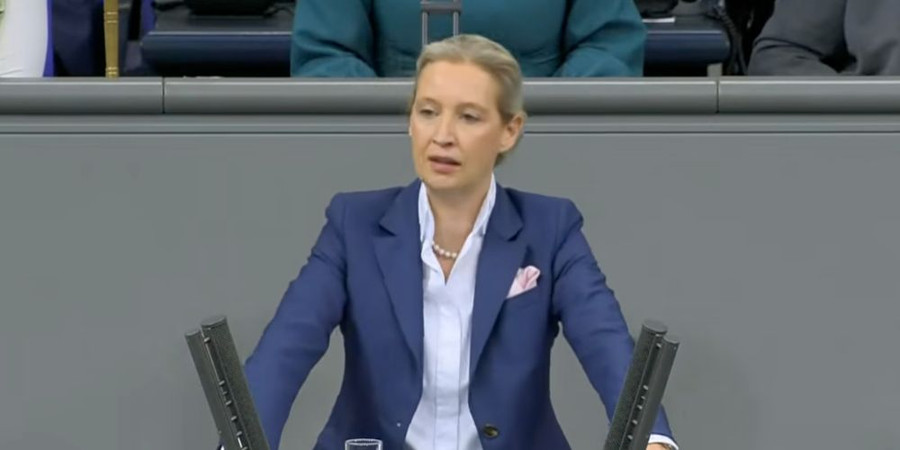More than 900 pages of documents released detail U.S.-funded research by EcoHealth Alliance on several types of coronaviruses at the Wuhan Institute of Virology.
As reported by The Intercept, the documents describe the work of EcoHealth Alliance, a U.S.-based health organization that used federal funding to conduct research at the Chinese lab. These documents include two previously unpublished grant proposals funded by the National Institute of Allergy and Infectious Diseases, as well as project updates relating to the research.
The documents were released following ongoing Freedom of Information Act litigation by The Intercept against the National Institute of Health.
“This is a roadmap to the high-risk research that could have led to the current pandemic,” Gary Ruskin, the executive director of U.S. Right to Know, said.
Indeed, one of the grants, titled “Understanding the Risk of Bat Coronavirus Emergence,” details an effort spearheaded by EcoHealth Alliance president Peter Daszak to screen thousands of bat samples for coronavirus. The research also included screening people who work with live animals.
The grant provided EcoHealth Alliance with a whopping $3.1 million, including $599,000 that the Wuhan Institute of Virology used to identify and alter bat coronaviruses likely to infect humans.
The grant proposal even warned of the potential dangers associated with experiments of this kind.
“Fieldwork involves the highest risk of exposure to SARS or other CoVs, while working in caves with high bat density overhead and the potential for fecal dust to be inhaled,” one warning read.
The documents also included information on key experimental work with humanized mice that was conducted at a biosafety level 3 lab at Wuhan University Center for Animal Experiment, not at the Wuhan Institute of Virology as previously believed.
As reported by Zero Hedge:
The materials further reveal for the first time that one of the resulting novel, laboratory-generated SARS-related coronaviruses--one not been previously disclosed publicly--was more pathogenic to humanized mice than the starting virus from which it was constructed...
...and thus not only was reasonably anticipated to exhibit enhanced pathogenicity, but, indeed, was *demonstrated* to exhibit enhanced pathogenicity.
The materials further reveal that the grants also supported the construction--in Wuhan--of novel chimeric MERS-related coronaviruses that combined spike genes from one MERS-related coronavirus with genetic information from another MERS-related coronavirus.
The documents make it clear that assertions by the NIH Director, Francis Collins, and the NIAID Director, Anthony Fauci, that the NIH did not support gain-of-function research or potential pandemic pathogen enhancement at WIV are untruthful.
“We applied for grants to conduct research,” Robert Kessler, communications manager at EcoHealth Alliance, said. “The relevant agencies deemed that to be important research, and thus funded it. So I don’t know that there’s a whole lot to say.”
The second grant, “Understanding Risk of Zoonotic Virus Emergence in Emerging Infectious Disease Hotspots of Southeast Asia, was granted in August of 2020 and goes through 2025. The proposal focuses on scaling-up and deploying resources in Asia in the event of an outbreak of an “emergent infectious disease,” referring to Asia as the “hottest of the [emergent infectious disease] hotspots.”
Alina Chan, a molecular biologist at the Broad Institute, believes the documents demonstrate that the EcoHealth Alliance has reason to take the lab leak theory seriously.
“In this proposal, they actually point out that they know how risky this work is,” Chan said. “They keep talking about people potentially getting bitten - and they keep records of everyone who got bitten. Does EcoHealth have those records? And if not, how can they possibly rule out a research-related accident?”
“I wish that this document had been released in early 2020,” Chan said of the grant document. “It would have changed things massively, just to have all of the information in one place, immediately transparent, in a credible document that was submitted by EcoHealth Alliance.”
 More than 900 pages of documents released detail U.S.-funded research by EcoHealth Alliance on several types of coronaviruses at the Wuhan Institute of Virology. As reported by The Intercept, the documents describe the work of EcoHealth Alliance, a U.S.-based health organization that used federal funding to conduct research at the Chinese lab. These documents include […]
More than 900 pages of documents released detail U.S.-funded research by EcoHealth Alliance on several types of coronaviruses at the Wuhan Institute of Virology. As reported by The Intercept, the documents describe the work of EcoHealth Alliance, a U.S.-based health organization that used federal funding to conduct research at the Chinese lab. These documents include […]





